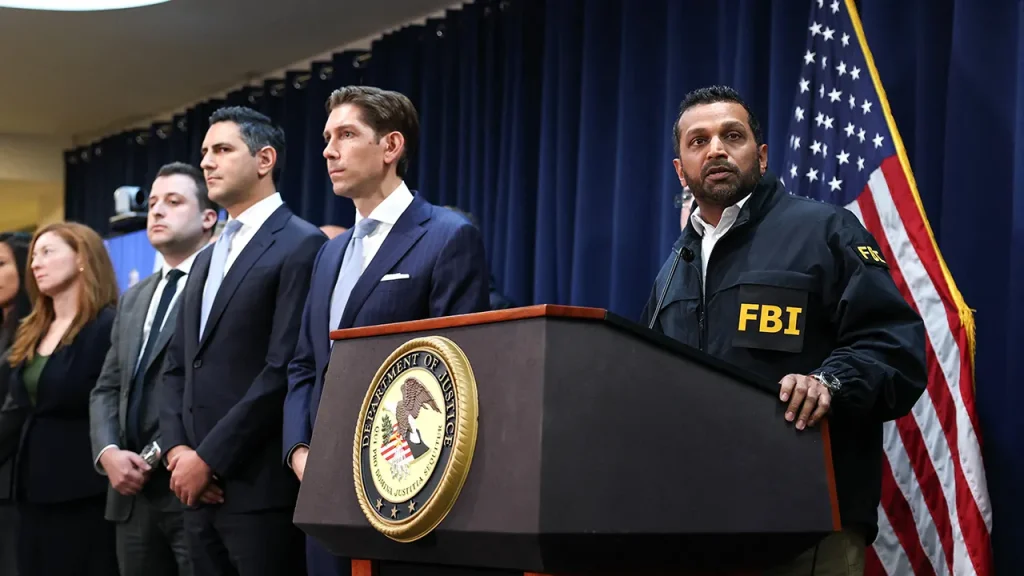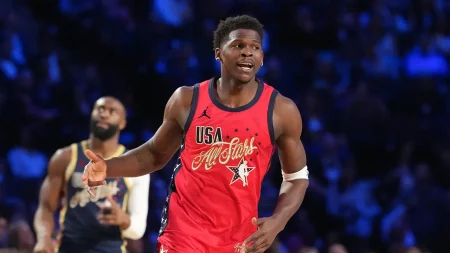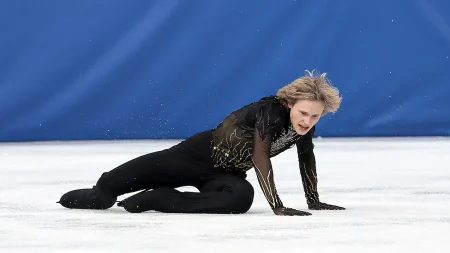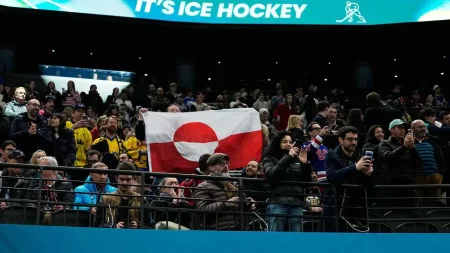NBA Figures Caught in Mafia-Linked Gambling Scandal
In a shocking development that intertwines professional basketball with organized crime, the FBI announced the arrests of 34 individuals, including current and former NBA figures, as part of an extensive investigation into illegal gambling operations. Portland Trail Blazers head coach Chauncey Billups, Miami Heat guard Terry Rozier, and former NBA player and coach Damon Jones were among those arrested in a probe that FBI Director Kash Patel described as historic in both scope and audacity. The investigation uncovered connections to four of New York’s notorious La Cosa Nostra crime families—the Bonanno, Gambino, Genovese, and Lucchese organizations—revealing a complex web of sports betting fraud and rigged poker games that had operated for years. “Not only did we crack into the fraud that these perpetrators committed on the grand stage of the NBA,” Patel announced at a New York news conference, “but we also executed a system of justice against La Cosa Nostra.” The case represents what authorities called an unprecedented collision of professional sports and traditional organized crime.
The investigation revealed two distinct but related criminal enterprises, according to U.S. Attorney Joseph Nocella of the Eastern District of New York. The first involved sports betting fraud, while the second centered on elaborately rigged high-stakes poker games that took place in luxurious settings across the Hamptons, Las Vegas, Miami, and Manhattan. These poker operations were reportedly backed by three crime families and employed a sophisticated scheme where NBA figures like Billups and Jones served as “face cards”—celebrity attractions who helped lure wealthy victims into games where they stood no chance. “What the victims, the fish, didn’t know is that everybody else at the poker game, from the dealer to the players, including the face cards, were in on the scam,” Nocella explained. The crime families allegedly entered this arrangement because they already controlled illegal poker operations in New York, creating a natural extension of their criminal enterprises that ultimately involved 13 alleged members and associates of these organizations, including high-ranking “capos and soldiers.”
The involvement of La Cosa Nostra adds a particularly troubling dimension to this case. The five New York-based crime families—Bonanno, Colombo, Gambino, Genovese, and Lucchese—evolved from the Sicilian Mafia and have maintained a powerful presence in American organized crime since the 1920s. Their reach extends beyond New York to Philadelphia, Detroit, Chicago, and New England. While their power has diminished somewhat in recent decades due to successful federal prosecutions, this case demonstrates that these organizations remain active and adaptable, finding new opportunities in the intersection of gambling, technology, and professional sports. The current scandal follows a long history of organized crime infiltrating sports, especially in activities where gambling presents opportunities for corruption and profit.
This latest case echoes several infamous sports scandals with mob connections throughout American history. In the 1950s and 1960s, boxing was notoriously controlled by organized crime figures like Frank “Frankie” Carbo, a Lucchese family soldier, and his partner Frank “Blinky” Palermo, who were convicted in 1961 for extortion and conspiracy after using intimidation to control welterweight champion Don Jordan. College basketball has also been vulnerable to organized crime influence, most notably in the 1951 point-shaving scandal involving City College of New York and Long Island University, where players accepted bribes from gambling syndicates connected to New York’s criminal underworld. Similarly, the 1978-79 Boston College basketball point-shaving scheme directly involved Lucchese family associates Henry Hill and James “Jimmy the Gent” Burke, who paid players to manipulate game scores for betting profits, ultimately resulting in multiple convictions.
The current NBA-connected scandal represents a sophisticated evolution of these historical patterns, incorporating modern technology and cryptocurrency into traditional criminal enterprises. According to FBI Director Patel, the scheme involved not just conventional gambling but also “crypto fraud,” suggesting that the perpetrators adapted their methods to exploit new financial technologies. This combination of traditional organized crime tactics with modern financial systems allowed the operation to function across multiple jurisdictions and attract high-value targets. The investigation demonstrates both the persistence of organized crime in seeking out profitable illegal gambling operations and the continuing vulnerability of professional sports to such corruption. Despite decades of reforms and increased oversight in professional sports, the allure of gambling profits continues to create opportunities for criminal exploitation.
The arrests of Billups, Rozier, Jones, and dozens of others represents one of the most significant sports-related organized crime cases in recent memory, with potential far-reaching consequences for the NBA and professional sports more broadly. While neither the league nor the implicated teams have issued comprehensive statements addressing the arrests, the scandal raises serious questions about the effectiveness of current safeguards against gambling-related corruption in professional sports. As legal sports betting rapidly expands across the United States, this case serves as a sobering reminder that the intersection of sports and gambling continues to attract criminal elements. The investigation remains ongoing, with prosecutors indicating that additional charges could follow as they continue to unravel the full extent of the operation. For now, the sports world must grapple with the reality that even in 2024, the long shadow of organized crime can reach into the highest levels of professional athletics, compromising the integrity that fans and institutions depend upon.













